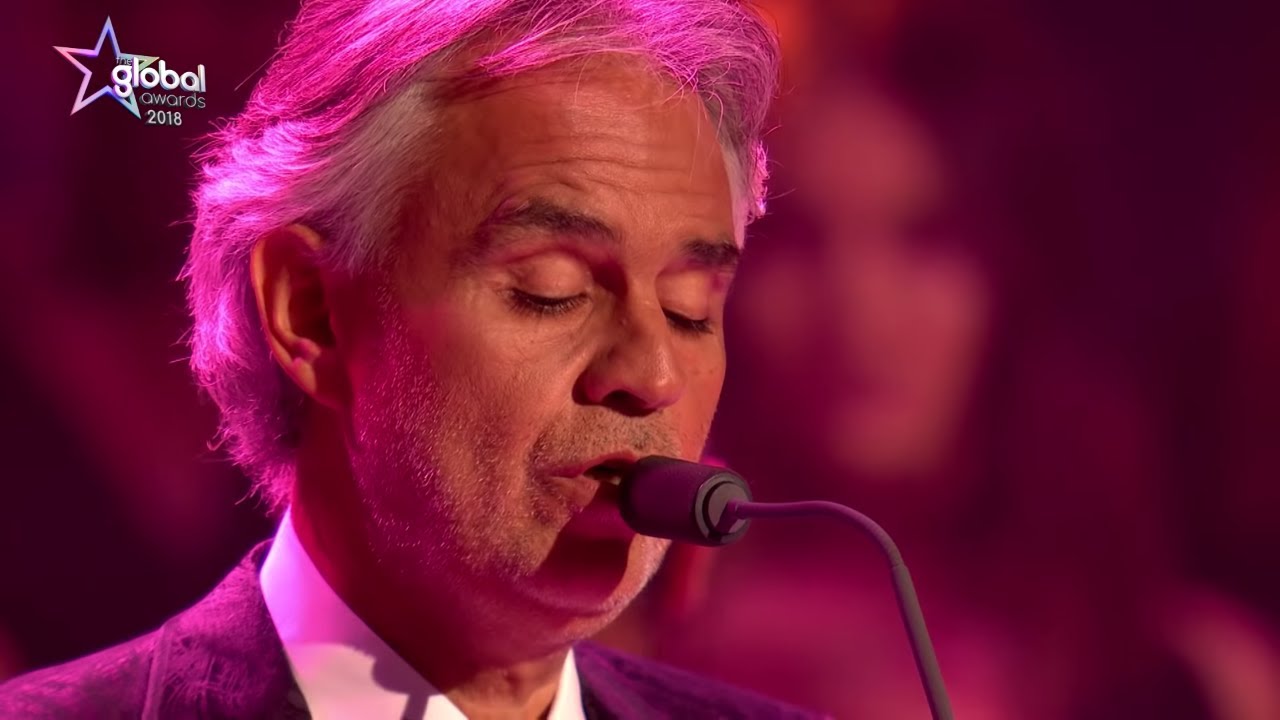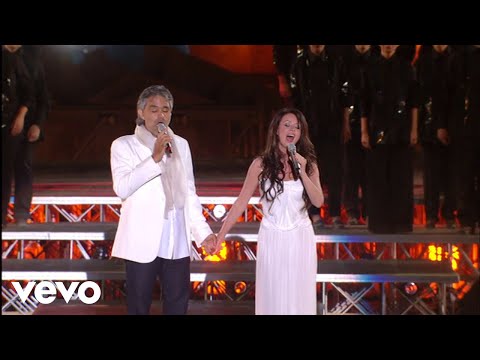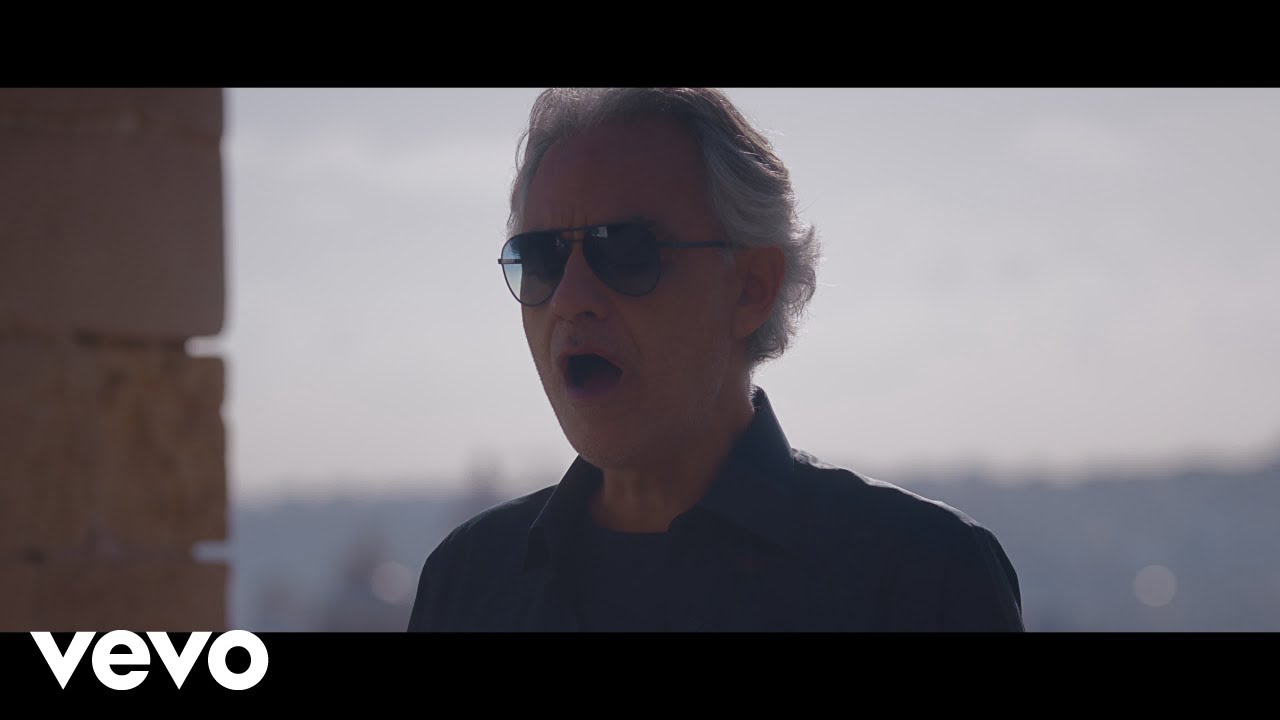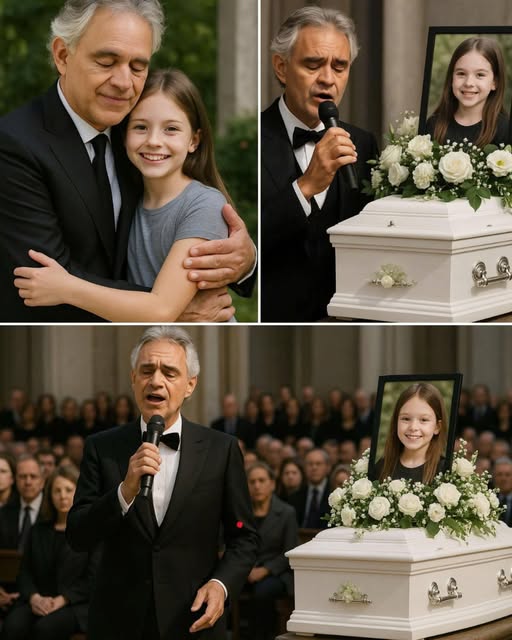“Time to Say Goodbye”

“His voice carried both sorrow and peace,” a mourner whispered, her hands trembling as she clutched a handkerchief to her chest.
The chapel had fallen completely silent — not out of fear or awe, but reverence. All eyes turned as Andrea Bocelli stepped forward with quiet dignity, a single white rose cradled in his hand. He approached the tiny white casket that held Elara Grace, only nine years old, gone far too soon. The room held its breath.
With a tenderness that words could never reach, Bocelli knelt, placed the rose on the satin, and stood beside the piano. There was no orchestra, no sweeping lights, no applause. Just one man. One song. One farewell.
As he began to sing “Time to Say Goodbye,” his voice didn’t pierce the silence — it healed it. Soft at first, almost like a lullaby, the notes rose with aching beauty, each one a tribute to a life so brief, yet so deeply loved. The melody hung in the air like incense — heavy, sacred, and full of something greater than any of us.
Tears flowed freely, not just from Elara’s family, but from strangers who felt the weight of it all — the sorrow of loss, the fragility of life, and the rare grace of witnessing music become prayer.
In that moment, what was meant to be a private farewell transformed into something eternal. Bocelli’s voice was more than sound — it was a bridge between worlds, carrying a message only the soul could understand. No words were needed. Just the rise and fall of melody, the aching warmth of memory, and the soft whisper of goodbye.
No words were needed. Just the rise and fall of melody, the aching warmth of memory, and the soft whisper of goodbye.
And when the last note faded, the room remained still. No one moved. No one needed to. The silence said everything.
Rest gently, Elara. May your light continue in every note, every petal, every breath of peace that lingers in the wake of love.











